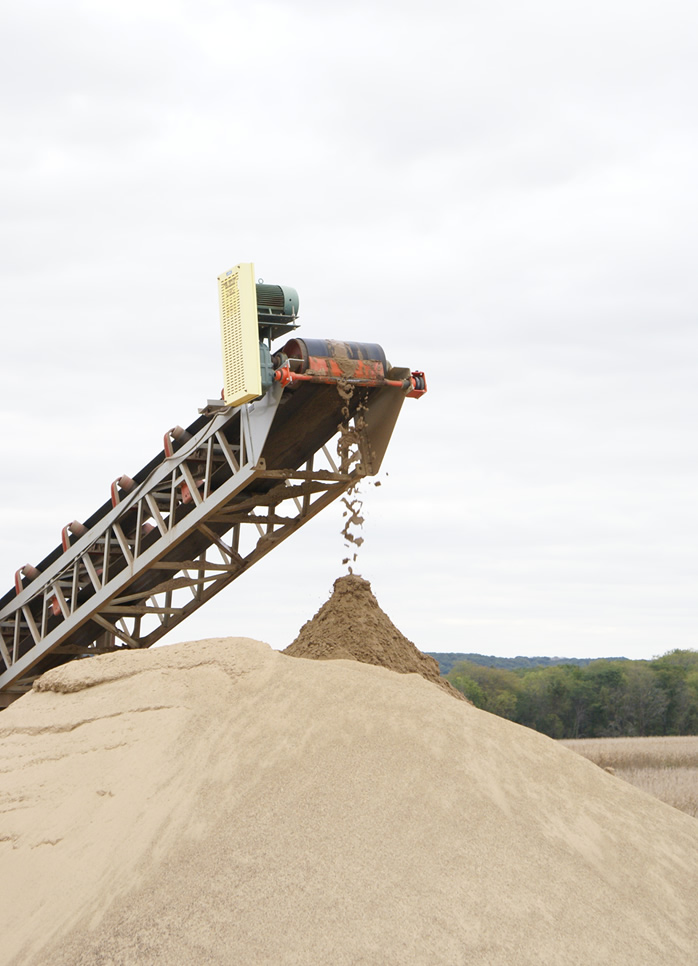New CEMA Standard for Belt Cleaners
Published: March 23rd 2015
 [Naples, FL USA] – The Conveyor Equipment Manufacturers’ Association (CEMA) has issued a new standard for the ranking of conveyor belt cleaners, a long-awaited publication that provides performance-based guidelines for specifying belt cleaners by establishing a specific formula for determining the level of difficulty in a given application. The goal of rating the application difficulty is to assist in appropriate cleaner selection, facilitating a suitable choice so both end user and supplier can be satisfied with the result. The new standard is included in the 7th edition of the CEMA book, Belt Conveyors for Bulk Materials, in the section on belt cleaning.
[Naples, FL USA] – The Conveyor Equipment Manufacturers’ Association (CEMA) has issued a new standard for the ranking of conveyor belt cleaners, a long-awaited publication that provides performance-based guidelines for specifying belt cleaners by establishing a specific formula for determining the level of difficulty in a given application. The goal of rating the application difficulty is to assist in appropriate cleaner selection, facilitating a suitable choice so both end user and supplier can be satisfied with the result. The new standard is included in the 7th edition of the CEMA book, Belt Conveyors for Bulk Materials, in the section on belt cleaning.
According to the organization’s web site, “The Classification of Applications for Bulk Material Conveyor Belt Cleaning” has been established to provide a uniform method for determining the application class of any individual belt conveyor. “For end users, the standard is an objective means of determining a cleaner’s suitability for the plant’s material and operating conditions, allowing them to specify a cleaner most likely to meet their needs,” explained Product Engineer Daniel Marshall from Martin Engineering. “It also provides a means to check a sales rep’s recommendations against the application requirements, allowing users to compare ‘apples and apples’ in terms of duty rating, performance and pricing.” Manufacturers voluntarily specify into which class their particular designs fall.
Conveyor engineers are also expected to benefit from the new standard, as they can now specify a belt cleaner rating without relying on a manufacturer’s proprietary technical information. “An objective method to determine cleaner suitability helps designers by allowing them to specify a cleaner based on its performance and durability,” Marshall continued. “Now subjectivity can essentially be removed from the cleaner purchasing decision to concentrate on system performance.”
For belt cleaner manufacturers, CEMA 576 is a way to confirm that a cleaner matches the application requirements, and thereby assure customer satisfaction. “Suppliers can now include a clear ranking on data sheets and other literature, allowing customers to review and compare products,” Marshall observed.
How It Works: an Overview
The standard uses belt features and material characteristics to develop its ratings, using CEMA Standard 550 to assign values for the material categories. The factors include the conveyor speed, belt width and splices, as well as the material’s abrasiveness and moisture content. Each is scored individually and then totaled to arrive at the class rating for the application. The final score is divided into five application (“Class”) levels and should be specified when cleaners are being selected. Appropriate cleaners should have a rating that meets or exceeds the calculated application class score.
“Specifiers of a belt cleaner need to consider the environment in which it operates,” Marshall continued. Several factors will play significant roles in deciding the appropriate selection, and this standard provides a way to condense a complex operating environment into a single classification number.”
Martin Engineering participated in development of the new standard, contributing expertise gained from 75 years solving problems in bulk materials handling. The company has collaborated with CEMA in many capacities, with personnel serving in roles such as president, vice president, secretary and treasurer, as well as officers and chairs of numerous standards-writing committees. Retired CEO and Chief Technical Officer Todd Swinderman (currently a consultant to Martin Engineering) also served as chair and editor of the 6th edition of the “CEMA Belt Book” - Belt Conveyors for Bulk Materials, in addition to editing the 7th edition.